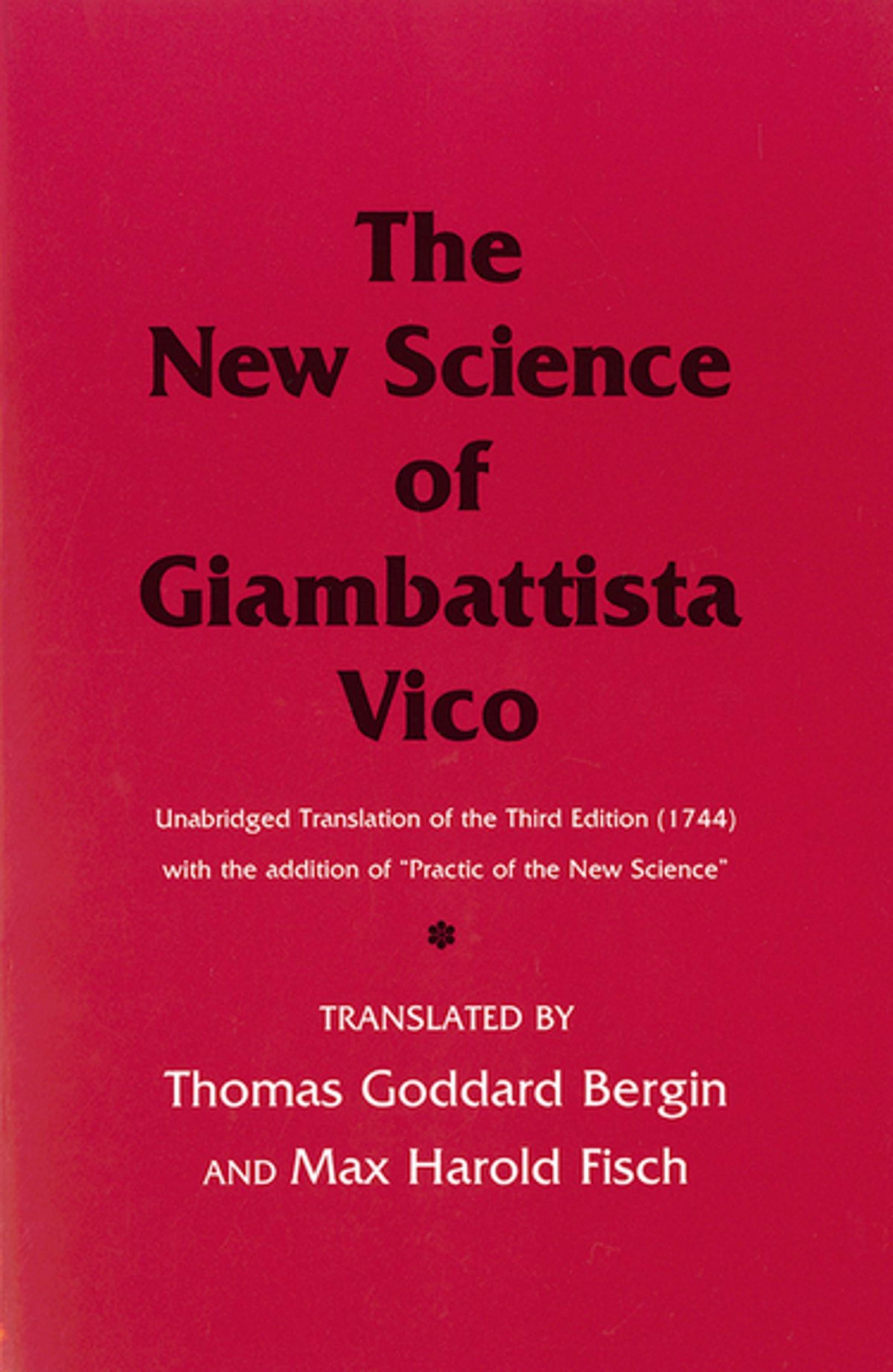The New Science by Giambattista Vico

Author:Giambattista Vico [Vico, Giambattista]
Language: eng
Format: epub, pdf
Publisher: Yale University Press
Published: 2019-06-23T16:00:00+00:00
COROLLARIES
concerning contracts completed by consent alone
(570) Because, through the most ancient law, the heroic gentile peoples cared about nothing but the things necessary for life, and because they gathered no fruits other than the fruits of nature, as yet understood nothing about the advantage of money, and were, so to speak, all body (they certainly could have recognized the contracts which are today completed by consent alone). And they were also extremely rude, because of which it is proper to be suspicious, for rudeness is born of ignorance,386 and it is a property of human nature that it always doubts what it does not know. On account of all this, those peoples did not recognize good faith, and they made all their obligations secure with a handing over—either a true handing over or one which was a legal fiction—and made them still more certain during the process of the transaction with solemn stipulations. From here comes that celebrated heading in the Law of the Twelve Tables: SI QUIS NEXUM FACIET MANCIPIUMQUE UTI LINGUA NUNCUPASIT IUS ESTO [“if anyone shall make bond or conveyance, as he has declared with tongue, so shall it be law”]. From this nature of human civil things come the following truths.
(571) I. As they say, the most ancient form of sale and purchase was exchange, and when this involved real estate, this must have been what was called, in the return to barbarism, livellus, the advantage of which exchange was understood to lie in one party having an abundance of fruits which were scarce for another party, and vice versa.
(572) II. The leasing of houses could not have had currency when cities were small and habitations were confined; as a result, proprietors must have offered their grounds for others to build on, and so there could have been no other kind of rent.
(573) III. The leasing of lands must have been the emphyteusis,387 which, in Latin, is called clientele [“clientship”], whence grammarians have divined that they used the word clientes [“clients”] as if it were colentes388 [“cultivators”].
(574) IV. As a result, this must be the reason that, in the midst of the return to barbarism, one reads of no other contracts in the old archives than those for the rent of houses or farms, either in perpetuity or for a set time.
(575) V. This is perhaps the reason that emphyteusis is a contract de iure civili [“pertaining to civil law”]: that, through the principles found herein, this is the same as de iure heroico Romanorum [“pertaining to the heroic law of the Romans”], to which Ulpian opposes the ius naturale gentium humanorum [“the natural law of the humane gentile peoples”], a law which he called “humane” in comparison with the law of the barbarian peoples who came earlier, not that of the barbarian peoples, who, in his time, were outside of the Roman empire, for these were of no importance to Roman jurists.
(576) VI. Society was unknown during the cyclopean custom whereby each paterfamilias cared only
Download
This site does not store any files on its server. We only index and link to content provided by other sites. Please contact the content providers to delete copyright contents if any and email us, we'll remove relevant links or contents immediately.
| Archaeology | Essays |
| Historical Geography | Historical Maps |
| Historiography | Reference |
| Study & Teaching |
Underground: A Human History of the Worlds Beneath Our Feet by Will Hunt(12099)
Sapiens by Yuval Noah Harari(5372)
Navigation and Map Reading by K Andrew(5158)
The Sympathizer by Viet Thanh Nguyen(4393)
Barron's AP Biology by Goldberg M.S. Deborah T(4150)
5 Steps to a 5 AP U.S. History, 2010-2011 Edition (5 Steps to a 5 on the Advanced Placement Examinations Series) by Armstrong Stephen(3736)
Three Women by Lisa Taddeo(3434)
Water by Ian Miller(3188)
The Comedians: Drunks, Thieves, Scoundrels, and the History of American Comedy by Nesteroff Kliph(3079)
Drugs Unlimited by Mike Power(2594)
A Short History of Drunkenness by Forsyth Mark(2297)
DarkMarket by Misha Glenny(2212)
And the Band Played On by Randy Shilts(2210)
The House of Government by Slezkine Yuri(2206)
The Library Book by Susan Orlean(2072)
Revived (Cat Patrick) by Cat Patrick(1993)
The Woman Who Smashed Codes by Jason Fagone(1973)
The Absolutely True Diary of a Part-Time Indian by Sherman Alexie(1913)
Birth by Tina Cassidy(1905)
